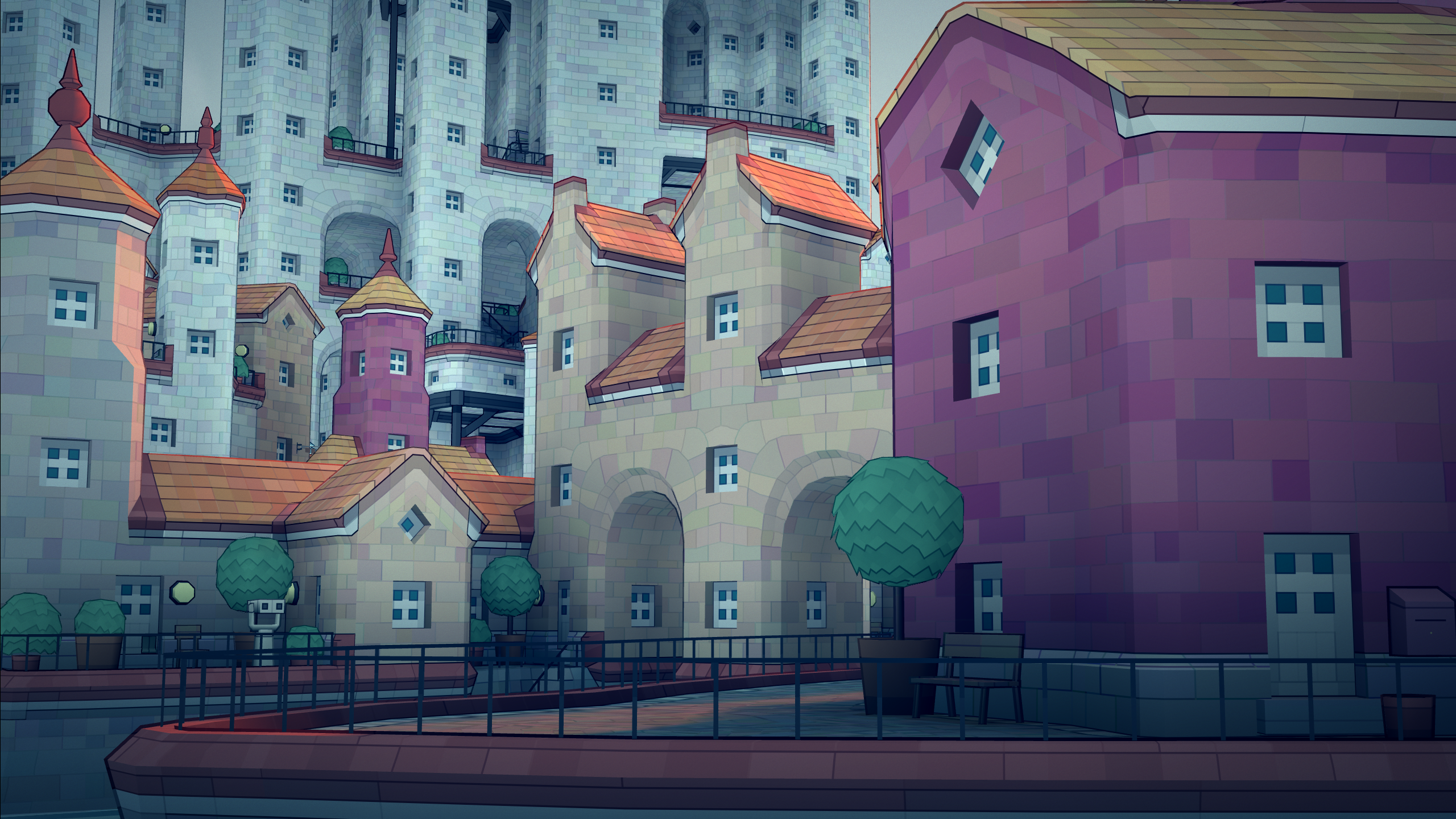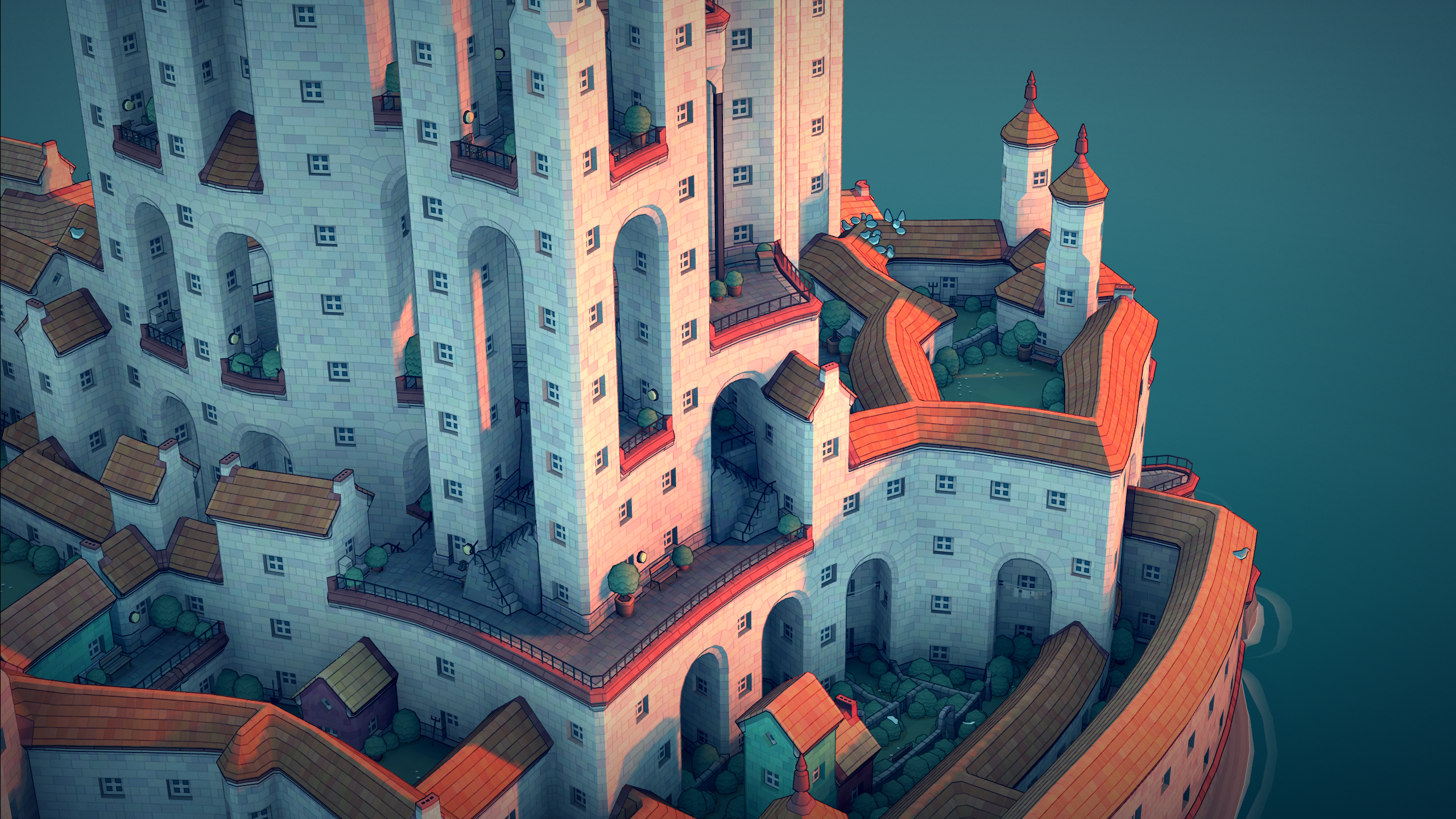Our Verdict
A pleasant toy for building your own idyllic seaside getaways.
PC Gamer's got your back
What is it? Build your own Mont-Saint-Michel.
Expect to pay £5/$6
Developer Oskar Stålberg
Publisher Raw Fury
Release August 26
Reviewed on RTX 2070 SUPER, AMD Ryzen 5 3600, 16GB RAM
Multiplayer? No
Link Official site
Of all the places I lived growing up, I've a particular fondness for the seaside town of North Berwick, waking up a stone's throw from the rolling waves and screaming gulls, salty air wafting through winding streets. Going back these days breaks the illusion a little, mind—the town's been further gentrified into a resort, and you can barely move for tourists at the height of summer. Fortunately, Swedish developer Oskar Stålberg's Townscaper recaptures the magic of exploring an endless series of quaint ports and seaside villages, one tile at a time.
Townscaper isn't a game so much as it is a virtual toy. A kind of Lego set for building picturesque, cobbled villages as cosy or as sprawling as your imagination desires. No complex traffic, power or infrastructure management here—just left clicking to place a tile (a street at water level, a brightly-coloured house anywhere above that), and right clicking to delete it. Really, that's all there is to it.
Except Townscaper adds a whole lot of small, welcome touches that turn what could otherwise be a rote block-dropper into something altogether more charming. For starters, Townscaper's grid is a wonky, winding sprawl. Building will organically lead into the kinds of crooked angles and quirky street layouts that define seaside towns (though, if you insist, there are parts of the grid that'll let you create rigid, geometric blocks).
Tiles also smartly adapt to what's placed around them. Stairs will form between levels, rooftops become streets, archways forming where towers intersect each other. Enclosed streets will become gardens, which fence themselves off based on blocks of differently-coloured houses. There's no formal unlock system, but learning what kind of interactions create different kinds of architecture is rewarding in and of itself—besides, the satisfying "plop" effect when placing a tile never gets old.
While you'll never see villagers roaming around, Townscaper has plenty of tricks to help your worlds feel lived-in. Washing lines often pop up between buildings, lights flicker on when you pull the sun low, and flocks of gulls will swarm and perch themselves on rooftops—though you needn't worry about getting bird shite all over town. With clever colour usage, you can give each neighbourhood a unique feel. My largest town, for example, features a sprawling, pristine marble tower extending tendril-like walkways over more cluttered neighbourhoods and gardens, a heavy emphasis on verticality inspired by Edinburgh's labyrinthine old town.

Townscaper may not have the complexity of a Cities: Skylines, but its quaint towns littered with cobbled streets and old churches, dockyards and lighthouses feel more instantly homely than the sterile American-styled metropolises of "real" city-builders—even when your town includes impossibly tall citadels or Bioshock Infinite-style floating cities. It's just a shame you can't zoom right down to a first-person view. Sure, you can awkwardly finagle the camera to a street-level view, but I long for an update that'll let me stroll the boardwalks myself.
With high-res screenshot options, texture toggles and the ability to move the sun itself, Townscaper makes for a shockingly good desktop wallpaper generator. A recent update even lets you export your town as a 3D model for printing, prototyping or whatever else you fancy. And yet, Townscaper is still just a toy. It's an extremely simple wee thing, and if you're looking for anything resembling a challenge, you'll probably find yourself clocking out in seconds.
But met on its own terms, diving in when you've a few spare minutes to lay down a new neighbourhood, Townscaper is an absolutely joyous little time waster that's kept me busy since it first hit early access last year. Now that it's out for real, I don't doubt it'll keep popping back in for a quick vacation for many months to come.
A pleasant toy for building your own idyllic seaside getaways.

20 years ago, Nat played Jet Set Radio Future for the first time, and she's not stopped thinking about games since. Joining PC Gamer in 2020, she comes from three years of freelance reporting at Rock Paper Shotgun, Waypoint, VG247 and more. Embedded in the European indie scene and a part-time game developer herself, Nat is always looking for a new curiosity to scream about—whether it's the next best indie darling, or simply someone modding a Scotmid into Black Mesa. She also unofficially appears in Apex Legends under the pseudonym Horizon.


